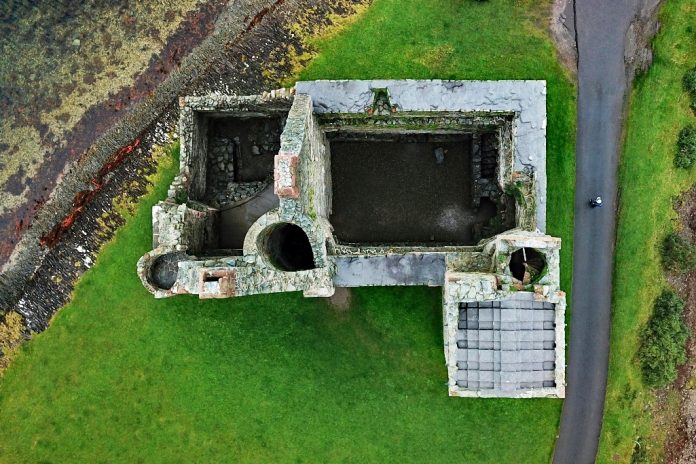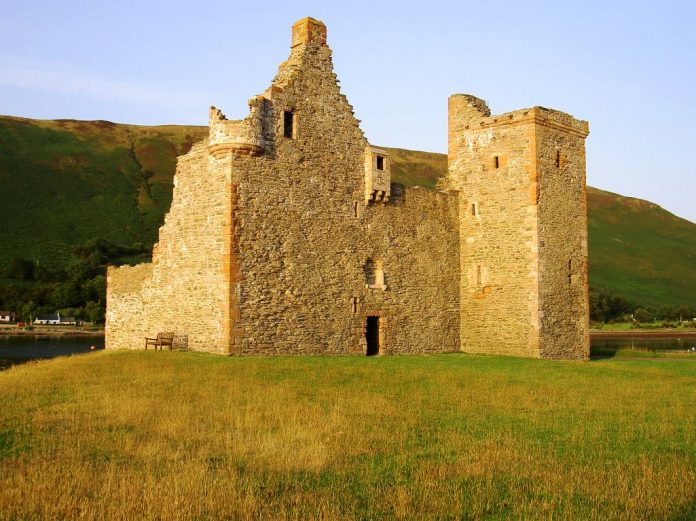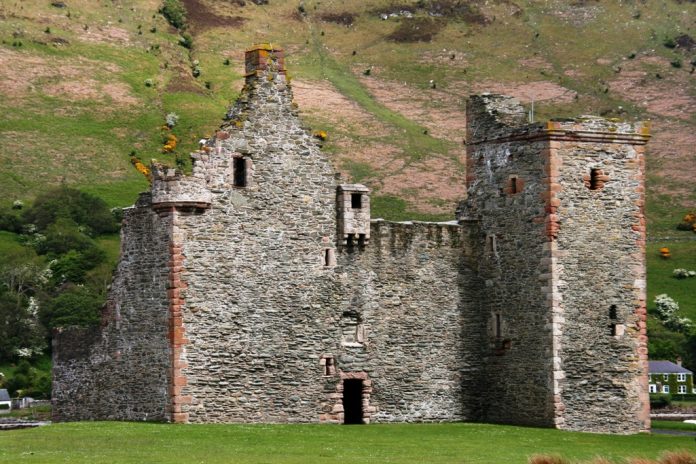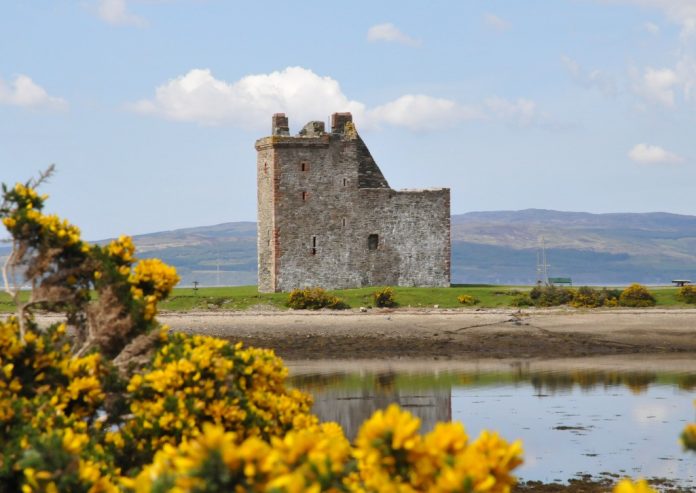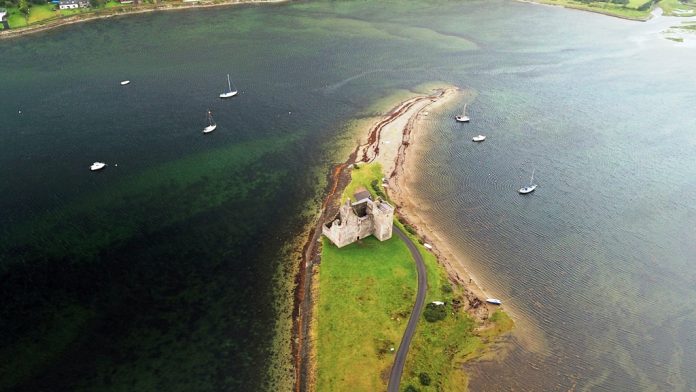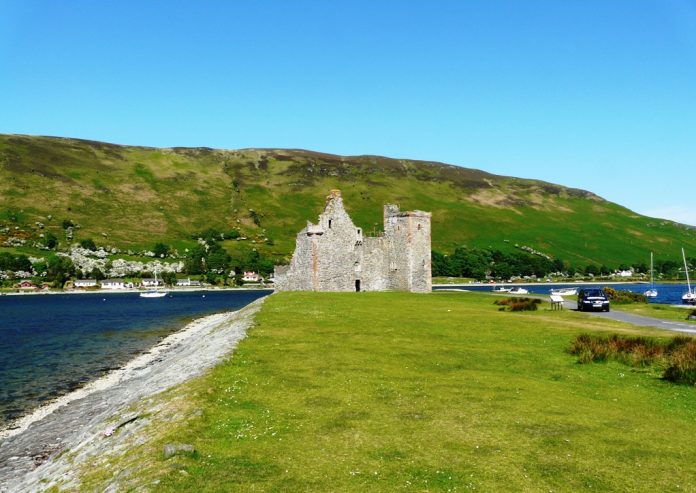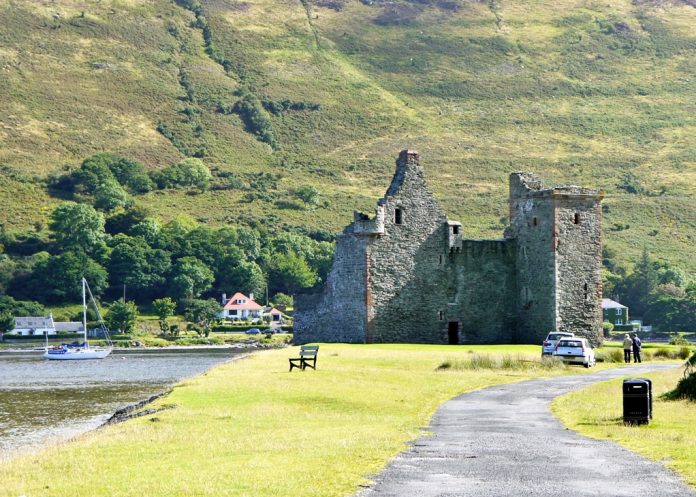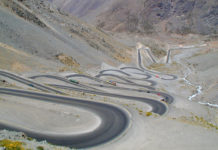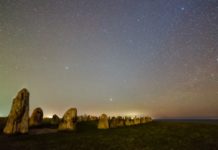In Scotland, Lochranza Castle is a fortified tower house with an L-plan located on a promontory overlooking Lochranza Bay. Even though it is in ruins, it is still a fascinating castle to visit, since it sits on a narrow strip of land that juts out into Loch Ranza. Lochranza Castle is situated 15 miles north of Brodick, the capital of the Isle of Arran.
The castle was mainly constructed between 1548 and 1554. This castle originally belonged to the MacSween family in the 13th century. Walter Stewart, the Earl of Menteith, received the castle and its lands from King Alexander III in 1262.
Lochranza Castle may have been Robert Bruce’s landing place in 1306 when he returned from Ireland to claim the Scottish throne. In 1371, Robert II owned the castle. It is believed the castle was used as a hunting lodge at this time.
James IV used the castle to wage war against the Lord of the Isles and the Clan MacDonald in the 1490s. Alastair McAlastair and his followers took control of Skelmorlie Castle in 1600, when Robert Montgomerie of Skelmorlie won back the castle for Hamilton. During the 1650s, Cromwell used the site when it was occupied by the king.
Lochranza Castle was purchased by Lady Hamilton in 1705, and eventually it became part of the Hamilton family estates. Eventually, the Hamiltons sold it to the Blackwood-Davidson family, who made it their primary residence on the Isle of Arran. A visit to Arran will give you a taste of everything a Scottish island has to offer. This region has it all, from beautiful beaches and mountains to verdant forests, cultural festivals, and tons of delicious local food.)
During the 18th century, the castle fell into disuse and was abandoned. The castle is now in the care of Historic Scotland. In the 1960s, when the drawings were modernized, Lochranza Castle was used as the model for The Adventures of Tintin comic, The Black Island. An arched bartizan crowns one corner, and a projecting machicolated projection is seen at parapet level.
After the war, Hergé’s chief assistant, Bob de Moor, followed Tintin’s lead by touring Britain, creating a series of background drawings using different locations. On March 19, 2010, it appeared on Channel 4 TV in “Dom Joly and the Black Island” under the name Kisimul Castle in the Outer Hebrides. As it appeared immediately after Joly tried to reach Kisimul Castle.
At the entrance, there were two staircases, one in the wall thickness and a turnpike staircase that climbed to all floors. The main block of the building houses a vaulted basement containing a kitchen and a cellar, but other parts are not vaulted. To the hall, there was a little stairway carved into the wall, but it has been closed off.
A raised dais occupies the middle of the hall, and a pit prison sits beneath it. Currently, visitors can access parts of the upper level and the ground level of the castle from the north and south sides. A local herd of deer may come down to drink and graze in the loch if you arrive early enough in the morning, and the combination of the deer and the castle is purely Scottish!
Overall, this is an important historic location where you can see the ruins of a castle at the mouth of the river and the harbor to the sea. Unfortunately, it is impossible to enter the castle ruin, but the surrounding area is atmospheric.
Read More – Glenfinnan Viaduct the West Highland Line¸ Scotland
